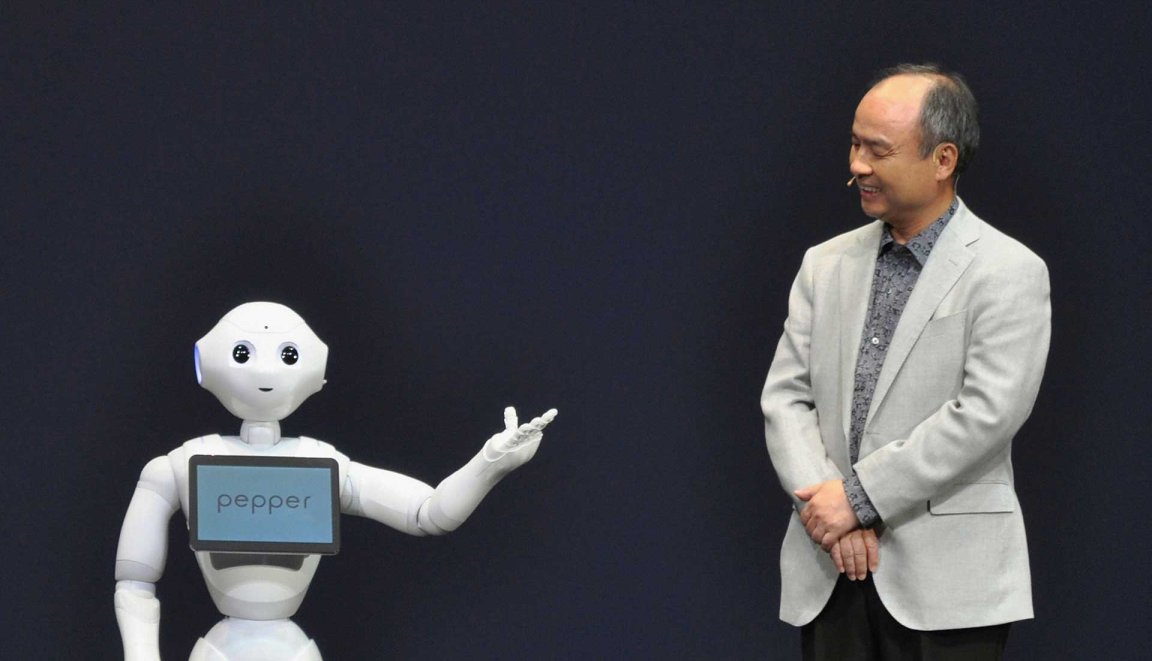
The Coming Singularity
There are few people who we can genuinely say are keen on bringing about the so-called technological singularity —i.e., that moment when intelligent machines become smarter than human beings. There’s famed “future teller” and Google top engineer Ray Kurzweil, who’s said the singularity isn’t something to be feared. But, perhaps, no one is as dedicated to making the singularity happen as much as Masayoshi Son, CEO of Japanese telecommunications giant SoftBank.
Son recently spoke at the Future Investment Initiative held in Riyadh, Saudi Arabia, where he mentioned that the singularity might just happen in about 30 years, when artificial intelligence develops an IQ of 10,000 —and SoftBank’s invested $100 billion to build chips capable of such IQ levels. That’s well beyond what’s considered average by human standards, which is at 100, and even greater than a human genius with a 200 IQ.
“Singularity is the concept that [mankind’s] brain will be surpassed, this is the tipping point, crossing point, that artificial intelligence, computer intelligence surpass [mankind’s] brain and that is happening in this century for sure. I would say there is no more debate, no more doubt,” the Japanese billionaire said on Wednesday, according to CNBC.
Son’s deadline for the singularity is 2047, and it closely matches that of Kurzweil, who previously pegged it at 2045. Through SoftBank, Son is intent to make the singularity happen. The company’s recent investments include funding some AI initiatives, like a partnership with IBM Watson, Fetch Robotics, and Honda, as well as the acquisition of U.K.-based chip manufacturer ARM.
More Science Than Science Fiction
Son spoke at the same event where Hanson Robotics’ notoriously famous robot Sophia announced her Saudi citizenship, the first for robot-kind, and wowed the audience with her incredibly amusing wit. SoftBank’s very own robot called Pepper also displays similar abilities. Supposedly, Pepper can perceive human emotions, according to SoftBank’s website. Sophia and Pepper represent many of today’s advances in robotics, which have grown considerably thanks to improvements in machine and deep learning.

“Thirty years from now, they are going to learn by themselves, they are maybe going to laugh at you and us,” Son told his audience. “Today they look cute, they will stay cute, but they will be super smart.”
Not everyone shares Son’s excitement about the singularity, however, and that really isn’t surprising. Some experts, notably Tesla CEO and founder Elon Musk, popular physicist Stephen Hawking, and Microsoft co-founder Bill Gates, have warned about humanity’s future when the singularity happens. When robots become smarter than humans, there’s bound to be consequences, some of which might be disastrous for our existence. That’s why Musk has invested on a technology that might give humankind a surviving chance against superintelligent robots.
For Son and Kurzweil, however, that’s mostly science fiction talking. In fact, Kurzweil said that the singularity might not happen in the way most people think it would. Instead, Kurzweil said smart machines will make us smarter, too.
“If you have to envision, 10 years or 30 years later, at least some humans will have a better imagination than them. So, it’s not the end,” Son explained. “The power of the brain is no limit. The imagination that we can have has no limit. So we are also going to improve our imaginations and our feelings, gut feeling.”